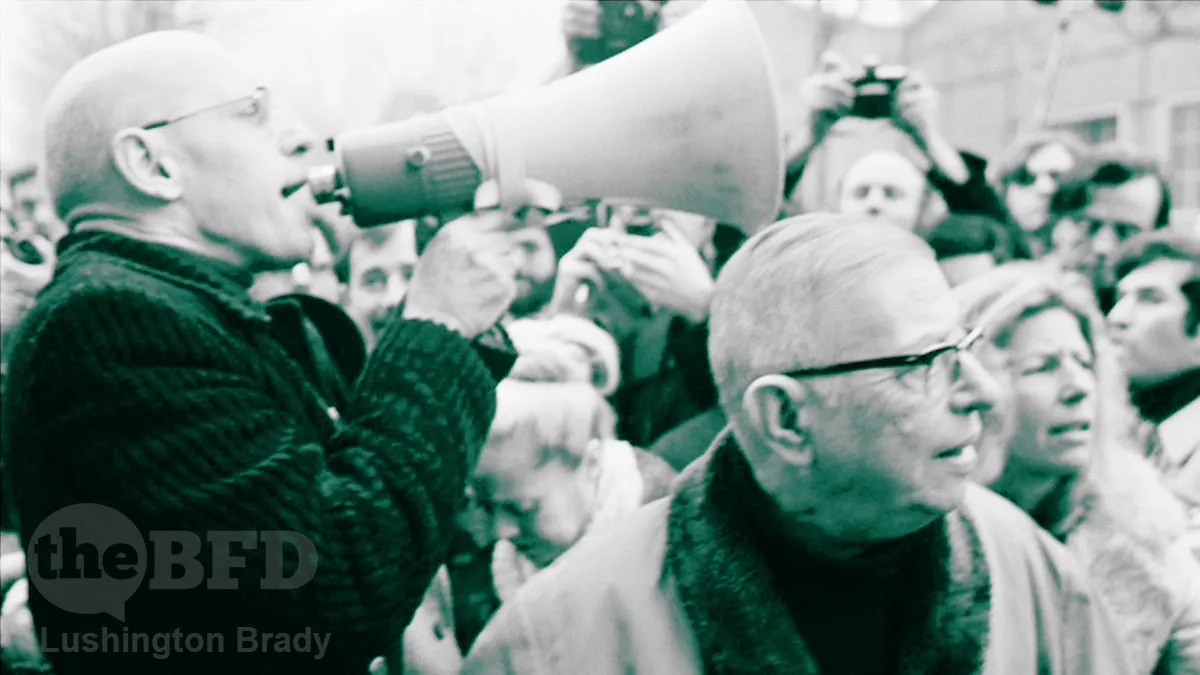Table of Contents
It’s over four years since I wrote about Why the left is promoting pedophilia (again). Even as I wrote it, I was painfully aware that it sounded like a loony conspiracy — four years later, it seems eerily prophetic.
Of course, that article was written in necessarily broad strokes. I noted the roots of contemporary paedophilia activism in the sexual liberation of the 1960s and 70s, without going into too much detail. More intrepid muckrakers (a term coined as a journalistic honour, remember) are willing to comb through the fetid sewers of pedo activism, to uncover its sleazy history and how it is inextricably twisted with the strands of modern “progressivism”.
Predictions over the years have theorized that the peak logical end of sexual liberalism is pedophilia normalization. It is forbidden to forbid, a phrase associated with the 1968 civil uprising in Paris, France, where Balenciaga is headquartered, became an expression of anti-establishment sentiment. The movement pushed boundaries on anything that opposed limits on individual liberty, as long as social norms existed freedom was only ephemeral to the movement.
From this era emerged a decade of queer radicalism and Derridean deconstructionism.
For those of you mercifully unburdened by a modern university education, Derrida is one of a clique of French academics who became the leading thinkers (so-called) of dominant post-Marxist academia. It’s these loons that we have to thank for, not just Post-Modernism and Deconstruction, but transgenderism, and, yes, the new wave of paedophilia activism.
A wave of activism that has concluded that it’s all but won the soft power battle for the academia and media. Now, it’s concentrating its energies on winning legislative battles. With, again, the French kiddy-fiddlers setting the template.
In 1977, French academics, Derrida, Sartre, de Beauvoir, and Foucault, petitioned for the reversal of articles that established age of consent laws, the argument drawing heavily on discrimination against gay men, which deconstructionists argued, was coded in age of consent laws. The petition cited the “Affaire de Versailles”, a criminal case where three adult men in their forties were accused of having sex with 13 and 14-year olds of both genders while out at a naturalist camp. The case was reported by members from The Revolutionary Communist League, who characterized charges against the men as an assault on nature. French newspapers Libération and Le Monde defended the idea of sex with minors.
Some of them were all too willing to put their ideology into creepy practice. Foucault, for instance, was recently accused, in a Sunday Times article, of being an open, serial rapist of young boys in Tunisia. The French media of the time were, allegedly, well aware of his crimes but covered up more assiduously than a Boston bishop. “There were journalists present on that trip, there were many witnesses, but nobody did stories like that in those days. Foucault was the philosopher-king. He’s like our god in France.”
Fast forward across the Atlantic to the early 2000s.
The Free Speech Coalition was founded as a California trade association for the adult entertainment industry. In 2001, FSC filed a lawsuit against Attorney General John Ashcroft charging that the Child Pornography Protection Act, which sought to criminalize the depiction of minors in sexually explicit content, abridged first amendment rights. In 2002, the Supreme Court struck down CPPA in Ashcroft v. Free Speech Coalition for being too broad, concluding that it would prohibit speech with literary or artistic value.
Significantly, it was the text of Ashcroft v. Free Speech Coalition which was featured in the recent, controversial Balenciaga “kiddy-porn” ad campaign.
The deregulatory drive for laws like age of consent and virtual child porn is sought in part for fear legislation endangers the activities of sex workers, pornographers, and pedophiles. In 2018, Free Speech Coalition’s Executive Director, Ian O’Brien helped launch the Prostasia Foundation […] in response to FOSTA/SESTA, legislation aimed at protecting children from online sex trafficking, except they viewed the legislation as a threat to pornographic interests, and lobbied against it on the grounds that it violated free speech. They advocate for illicit practices, like how to avoid law enforcement sting operations in the solicitation of minors in chat rooms like Roblox, a popular children’s gaming platform. They claim child abuse prevention should involve teaching children about fetishes and kink, and that viewing pornography can have a positive impact on children.
The Public Insight
The same thinking is behind a controversial BBC opinion piece which argued, in a tweet, for “age appropriate porn” for children.
The BBC contributor deleted the tweet — once it attracted unwanted attention — but nothing is more certain than that they and untold numbers of more activists in the media and NGOs will try it again as soon as the current dust dies down.
They have a strategy, you see. They’ve been pursuing it quietly and doggedly — and it’s paying off. As we’ll see in the second part of this report.









